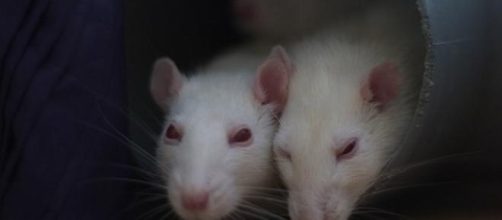Mention the word 'rat' and you often think of the worst in people and also the animal that is commonly associated with bad things, such as the bubonic plague. Maybe it also brings to mind connotations of the Pied Piper and the rats of Hamelin, something that the town wanted to rid themselves of. However, a recent study in the journal Biology Letters seems to paint a slightly different picture of the much maligned rodents.
The study's findings seem to suggest that instead of viewing rats' behaviour as being akin to the worst traits of human kind, that they may in fact demonstrate and reciprocate acts of kindness to their fellow rodents on occasion.
The aim of the study was to observe the principle of direct reciprocity, whereby if someone or something helps you, then you repay the kindness by helping them. Such behaviour has commonly been viewed as being rare in the animal kingdom, as confirmed by Michael Taborsky, a behavioural ecologist at Switzerland's University of Bern who was involved in the experiment. Indeed, it is believed that it is the first time that the concept has been observed in non-humans by adopting a scientific approach.
Working with his colleague Vassilissa Dolivo, the study involved the observation of the actions of 20 female wild-type Norwegian rats. A basic 'grade' of reward was set up, with pieces of banana acting as attractive rewards, while pieces of carrot were viewed as being less attractive.
The rats were placed in an enclosure and by pulling a stick were able to deliver one of the pieces of food to another rat. The researchers discovered that over time, the rat that was receiving the food was able to make a connection between the help it received based on what type of food it was provided with by its helper.
To test their hypothesis further, the scientists then switched the rats around, so that previous receivers became providers instead. This time, cereal flakes were introduced which could be delivered to the previous helpers by again using the mechanism of pulling a stick. It seemed that those rats that had effectively passed on bananas in their previous role, received the cereal quicker than those that had only delivered pieces of carrot.
Taborsky told the National Geographic that he thought such behaviour indicated that the rats were returning the favour, making an association between reward and repayment in their actions: "Two elements are involved: recognizing an individual, and responding to the quality of service."
He further suggested that earlier research has indicated that rats are indeed able to recognise each other and can differentiate between good and bad places to feed. Taking that a step further to postulate that they may consider rewarding one another, in order that they may receive some benefit themselves in future, "might not be as complex as we think," according to Taborsky.

